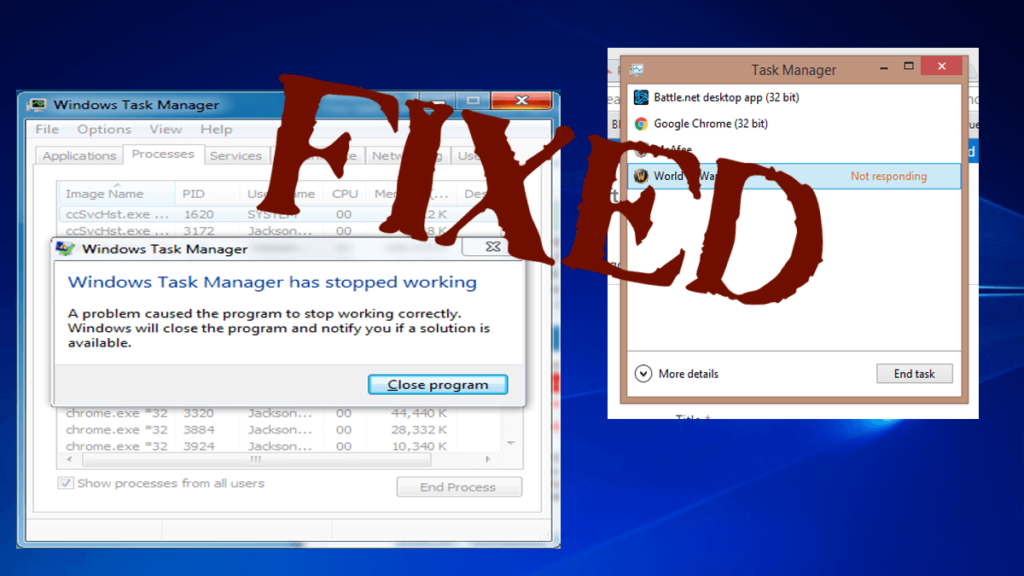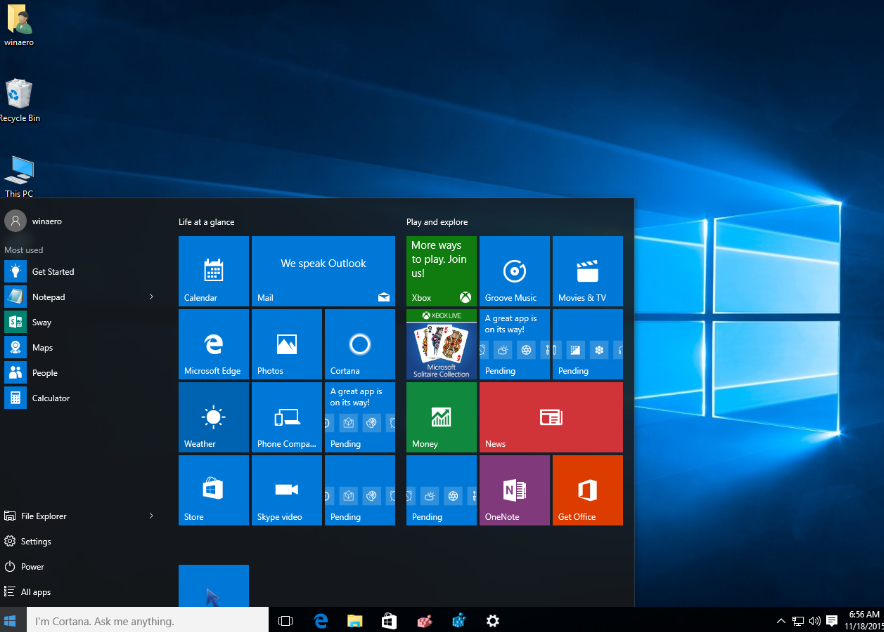

- WINDOWS DESKTOP MANAGER CRASHES ON STARTUP HOW TO
- WINDOWS DESKTOP MANAGER CRASHES ON STARTUP DRIVERS
- WINDOWS DESKTOP MANAGER CRASHES ON STARTUP WINDOWS 8
- WINDOWS DESKTOP MANAGER CRASHES ON STARTUP SERIES
Desktop Window Manager offloads a lot of work to your GPU to reduce load on your CPU.
WINDOWS DESKTOP MANAGER CRASHES ON STARTUP DRIVERS
WINDOWS DESKTOP MANAGER CRASHES ON STARTUP WINDOWS 8
That integration has deepened even further in Windows 8 and 10. Starting with Windows 7, Desktop Window Manager became a more integral part of Windows, that’s vital to creating the graphical user interface. Back in the Vista days, Desktop Window Manager was controlled through a service that you could turn off-and in turn disable all the visual effects.
WINDOWS DESKTOP MANAGER CRASHES ON STARTUP HOW TO
RELATED: How to Use the New Task Manager in Windows 8 or 10 Can I Turn Desktop Window Manager Off? Because Windows is compositing and displaying the contents of each window, it can add effects like transparency and window animations when layering the windows for display. Windows then creates one “composite” view of all the windows on the screen before sending it to your monitor. Instead of applications drawing their displays directly to your screen, applications write the picture of their window to a specific place in memory.
WINDOWS DESKTOP MANAGER CRASHES ON STARTUP SERIES
Note: Only files can be copied, programs should be installed from scratch in the new virtual machine due to Windows architecture peculiarities.This article is part of our ongoing series explaining various processes found in Task Manager, like ctfmon.exe, mDNSResponder.exe, conhost.exe, rundll32.exe, Adobe_Updater.exe, and many others. Don’t know what those services are? Better start reading! So What Is Desktop Window Manager?ĭesktop Window Manager (dwm.exe) is a compositing window manager that renders all those pretty effects in Windows: transparent windows, live taskbar thumbnails, Flip3D, and even high resolution monitor support. Once a new virtual machine is created you can attach the broken virtual machine hard disk to the new one to transfer personal data stored on the C drive. If Windows cannot boot even into Safe mode or the steps above didn't help, Windows is considered beyond repair and a new virtual machine is required. Reboot to normal mode and reinstall Parallels Tools.Ĥ. Unwrap Display adapters tab, locate Parallels Display Adapter (WDDM), right click it and select Uninstall. Then press Command (Win) + R buttons > in the appeared search bar type in devmgmt.msc > click OK, it will get you to Device Manager. REG ADD "HKLM\SYSTEM\CurrentControlSet\Control\SafeBoot\Network\MSIServer" /VE /T REG_SZ /F /D "Service" REG ADD "HKLM\SYSTEM\CurrentControlSet\Control\SafeBoot\Minimal\MSIServer" /VE /T REG_SZ /F /D "Service" When in Safe mode open Command Prompt as Administrator and execute the commands below:

The next troubleshooting step would be the same as on a real PC: try booting Windows to Safe mode. If resetting Windows did not help or the Actions menu is unresponsive, follow the steps from KB 6338.ģ. Note: To avoid such issues in the future, we recommend disabling Windows built-in fast startup feature.Ģ. If you use a virtual machine in Full Screen view mode move the mouse to the top of the screen and wait for 1-2 seconds to open the Mac menu bar. To release the mouse input and access the top menu bar easier, press Control + Option shortcut. Force restart Windows in Parallels Desktop: click Actions on Mac menu bar > Reset.


Such issues also happen on a real PC, this is Windows related issue caused by hanging of vital system processes or malfunctioning drivers.


 0 kommentar(er)
0 kommentar(er)
